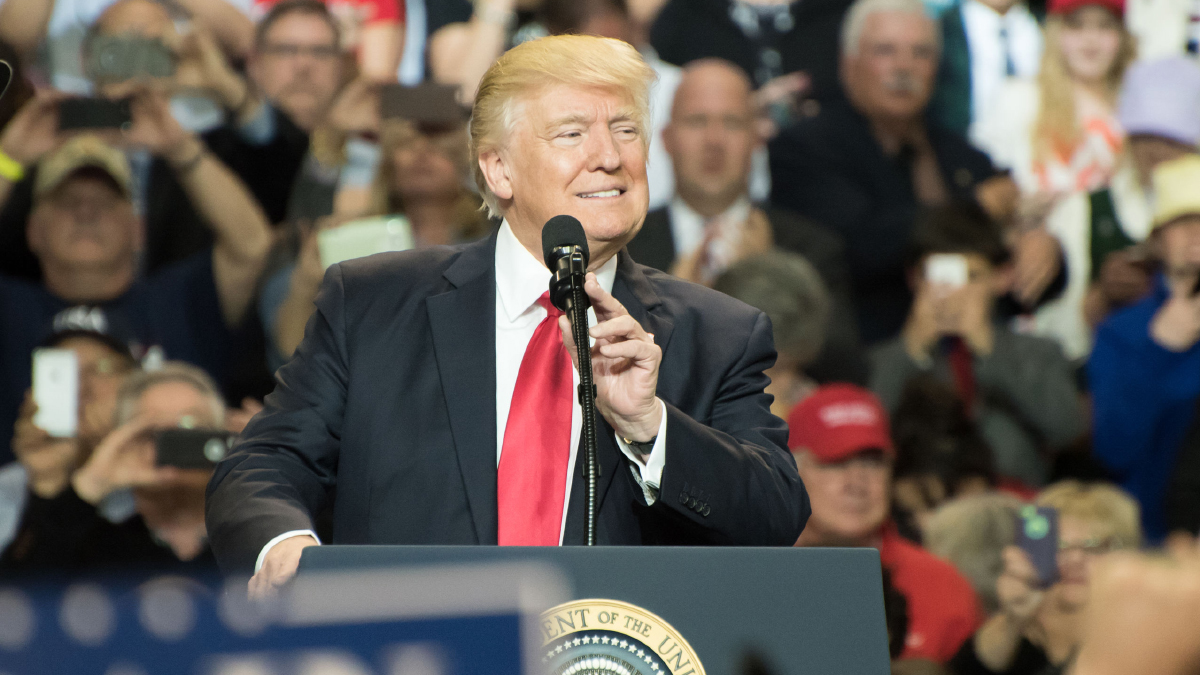President Trump is following in the footsteps of President Reagan and President George W. Bush by proposing massive tax cuts that will dramatically widen the federal budget deficits (the initial GOP plan adds $2.2 trillion to the deficit over a ten-year period), a move that will likely drive up interest rates and endanger economic expansion that has already been achieved.
Reagan was a true pioneer. He developed a way for the Republican Party to shed the image of being the party of “no”—that is, the party of fiscal responsibility—which never won any political party many votes. Reagan replaced that prior image with Republicans as the party of whopping tax cuts—a sure bell ringer for buying people’s votes come election time. It didn’t matter that despite his “small government” rhetoric, he actually increased federal spending as a portion of GDP (and was the second worst president since Truman in increasing the federal civilian workforce as a percentage of the country’s population). Such tax cuts and spending hikes resulted in yawning federal budget deficits that his successors, George H. W. Bush and Bill Clinton, had to eradicate.
However, Bush’s son, George W. Bush, took Reagan’s recipe for winning elections and repeated it, thus squandering the budget surplus that his father and President Clinton had worked to achieve. The younger Bush’s tax cuts were larger than Reagan’s, but so were his spending increases. In fact, W created the first new major entitlement program since Lyndon B. Johnson’s Great Society program—coverage of prescription drugs—and added it to a Medicare program that was already in bad financial shape. He also increased the federal role in education with “No Child Left Behind” and blundered into expensive (in both lives and money), unneeded nation-building military occupations of Iraq and Afghanistan.
As the “king of debt” in his real estate career, Trump is an unlikely chief executive to change this tried and true Republican vote-getting formula. Cutting people’s taxes is always popular, especially when they are falsely told that income tax rate cuts will pay for themselves by generating more economic growth, and thus more revenues to replace those lost with the rate cuts. No matter that such “supply side” mumbo jumbo is merely rationalizing being a tax collector for the welfare state.Yawning budget deficits—which Trump’s tax cuts without comparable spending cuts are likely to produce—will substantially increase government borrowing, which will in turn crowd out more productive private borrowing needed for investment, thus likely dragging the economy in the long term. The slow growth after the Great Recession during the Obama years can be attributed to the $20 trillion national debt accumulated during that and prior administrations.
A more conservative approach than the pseudo-conservative “supply side” one is to bite the bullet and take the politically difficult step of drastically reducing federal spending (tax cuts can eventually come if such spending cuts are large enough to generate a federal surplus). This “Austrian School” approach would not win many votes, because it would gore the ox of special interest voting groups. Thus, to bring this necessary policy to fruition would take a president with more courage, principle, and inclination than the “King of Debt” brings to the table.
Republicans wonder why the economy tends to perform better during Democratic presidential administrations than during Republican ones, but it’s probably because, political rhetoric aside, since Truman, the Democrats have actually carried out more “conservative” fiscal policies—containing federal spending better than Republicans and reducing, rather than increasing, federal budget deficits.
Tax cuts are great, but for once, we need to cut spending first. “Starving the beast” has not worked for recent Republican administrations and won’t work now. Tax reduction before spending cuts—which always seem to evaporate—will just make the existing deficits and accumulated debt worse. Although it is true that voters don’t care about budget deficits—the only people who do are currently disenfranchised future generations who will have to pay back the principle and interest—politicians need to summon the courage, as did Warren Harding and Calvin Coolidge after World War I, to cut back the bloated federal government, whose activities are mostly unconstitutional anyway.
Unfortunately, don’t look to Trump to do so.

















